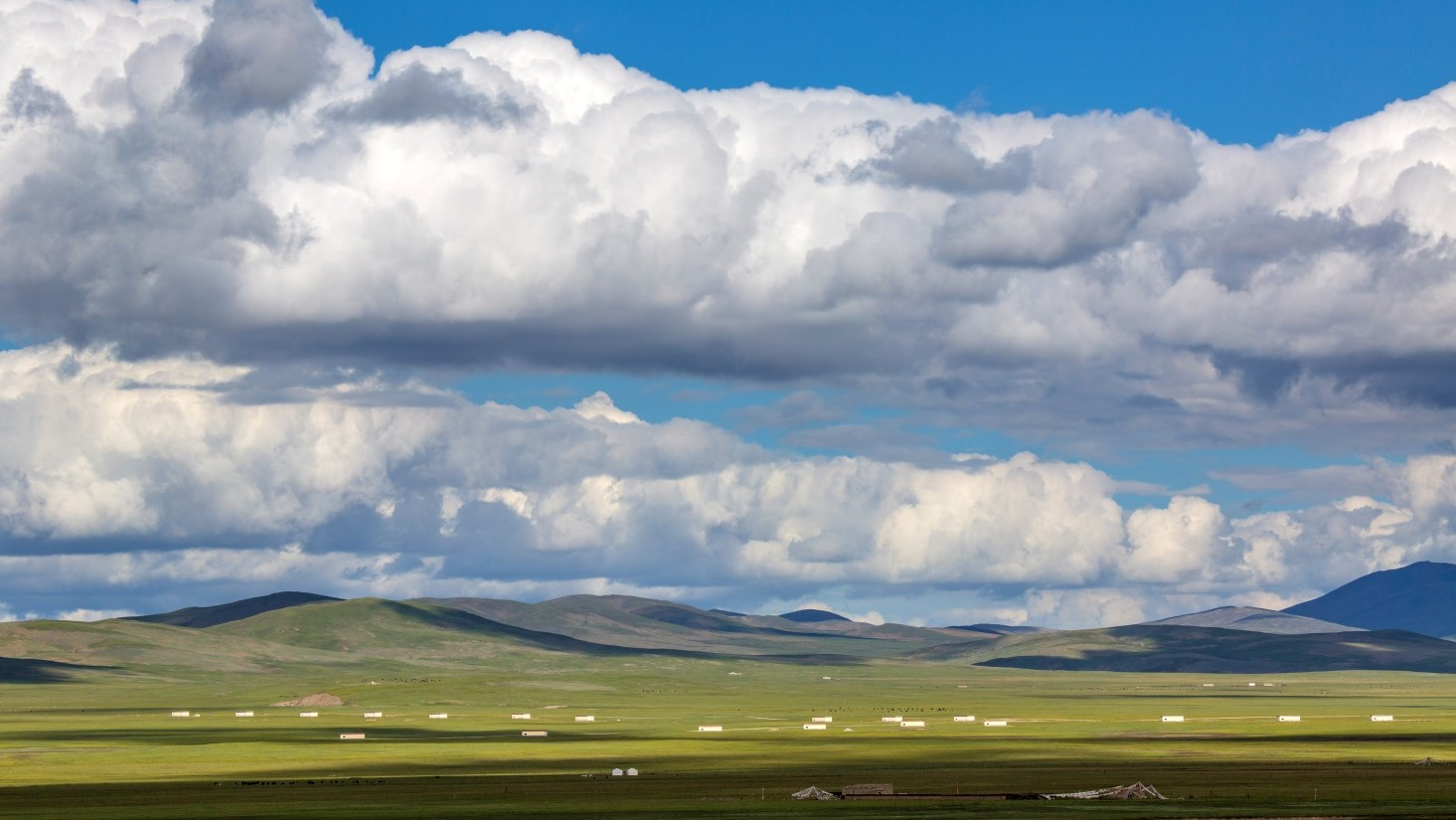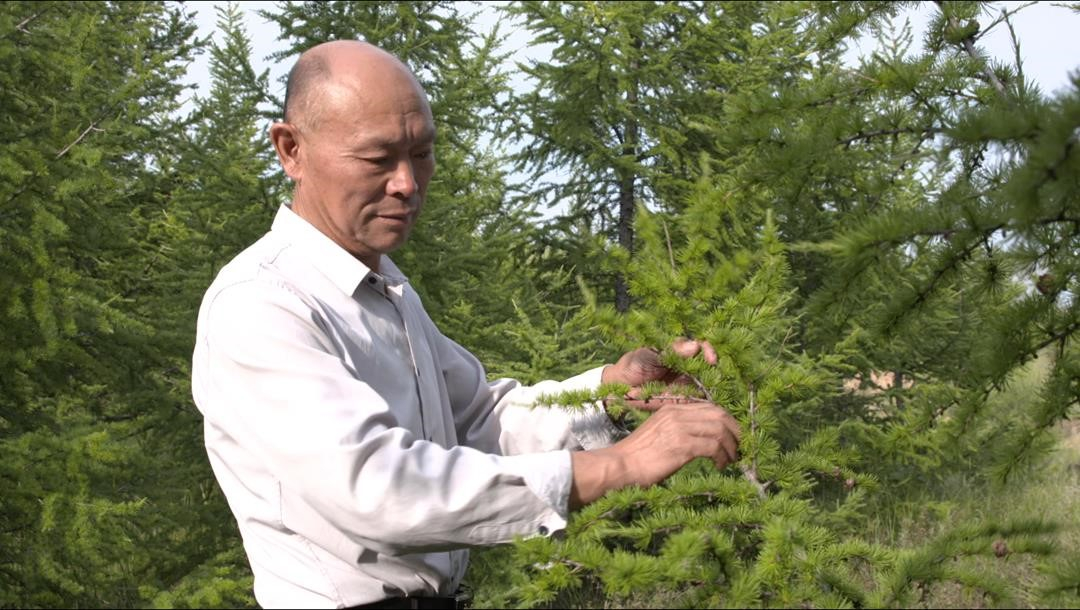
15:24, 03-Sep-2019
Highlight - How to turn barren land into an oasis?

Youyu county, in northern China's Shanxi province, is located on the edge of the Maowusu desert.
In the early years after the establishment of the People's Republic of China, Youyu faced a crisis of survival as encroaching sands threatened the county, forcing relocations because of arid land and frequent disasters including sandstorms.
Over the past 70 years, Youyu has turned the barren land into an oasis in the desert through unrelenting desertification control and afforestation. The local authorities regard the improvement in forestry as their top priority, and a strategic measure to improve people's livelihoods and achieve sustainable development.
In Youyu, many have devoted themselves to the cause of afforestation. Li Yunsheng, 64, who has devoted 17 years of his life to planting trees in his beloved Matou Mountain, is a typical example.
Matou Mountain is located in the northern part of Youyu county, reaching an altitude of 1,800 meters with deep valleys and infertile land. On the mountain slope lies Matoushan village, where Li Yunsheng was born and raised.
In 2001, the Youyu government arranged for the relocation of the entire village due to the harsh ecological environment. Once the land of his birth, Matou Mountain was now completely deserted, Li Yunsheng felt deeply upset about the situation and decided to stay and improve the mountain's ecology.
Born of this wish, Li contracted hectares of Matou Mountain, marking the beginning of his tree-planting odyssey. Since then, he has planted trees non-stop for years; often, he'd come to the mountain to care for the trees as if they were his children.
Having spent all his money on pines and poplars to help fix the soil, he had to apply for loans from banks and borrow from friends.
In addition to his financial difficulty, Li also suffered the incomprehension and objection from his family and friends, many of whom deemed him mad for giving up his normal life to toil on the mountain.
Regardless, Li stuck to his ideal. He thought it was impossible to develop the economy without a sound ecology. Ecological protection and development take a long time, but in the end, he thoughts, nature will reward.
Through decades of afforestation, the barren land was transformed, in recent years, into a woodland with plentiful rainfall.
Matou Mountain is today vividly alive with hares and pheasants running everywhere. Under the trees, herds of cattle roam about the wild grass. Li Yunsheng has paid back most of his debt with his earnings from raising cattle; he is thinking of developing agritourism here in the future.
Li Yunsheng reflects the hard-working and persistent quality of Youyu people. The forest coverage rate in Youyu has risen from 0.3% in 1949 to 55% today, thanks to the strenuous human effort.

Li Yunsheng checking on the pine trees in Matou Mountain, Youyu county/ CGTN Photo
Li Yunsheng checking on the pine trees in Matou Mountain, Youyu county/ CGTN Photo
Turning from a barren land to an oasis, how does Youyu develop its economy through ecology? How to further transform ecological construction into economic development seeking unification of ecological beauty and people's wealth?
To explore this question, Closer to China sits down with Wang Zhijian, Head of Youyu County, Shanxi Province.
According to Wang Zhijian, over the past 70 years, Youyu has turned the barren land into an oasis through unrelenting desertification control and tree planting.
Based on a sound ecological environment, he said, we have vigorously grown hectares of quality grain crops, and premium Chinese herbs, transforming pure ecological forests to economic forests. At the same time, clean energy has been promoted with a total installed capacity exceeding one million kilowatts. No efforts have been spared to build cultural and tourism industries.
Wang Zhijian states that Youyu bears General Secretary Xi Jinping's trust and expectation firmly in mind to better facilitate the transformation of lush mountains and clear waters into economically valuable assets, so as to share more ecological dividends with the people.
SITEMAP
Copyright © 2018 CGTN. Beijing ICP prepared NO.16065310-3
Copyright © 2018 CGTN. Beijing ICP prepared NO.16065310-3